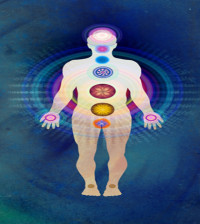- 5 Tips To Finding Peace Within Yourself
- The Do’s and Don’ts of Learning How to Accept Yourself
- How to Find Your Inner Peace and Transform Your Life
- 8 Benefits of Having an Open Mind and How to Get One
- Learn How To Be A Happier Person
- What Is The Meaning Of Life?
- Laws of Abundance – The Riches of Love and Joy
- How to Be Laid Back By Following These 9 Simple Strategies
- The meaning of confucius’ golden rule – 4 practical ways of living it
- 3 methods of unleashing the power of contentment in your life
Checklist of Character Flaws: Are You As Bad As You Think You Are?

We sometimes speak of “flaws” as though they’re irredeemable. There is some embarrassment when admitting to being imperfect. One tends to appreciate, however, people who say that they are “a work in progress.” The flaws are there, yes, but for a reason: as something to work on, to surmount, or perhaps to pose a challenge. Have you ever seen someone accomplish something despite all expectations to the contrary? Have you ever surprised even yourself by doing something that seems contradictory to your supposed flaw – to having proven better than you thought yourself to be? Maybe what you need is a change in perspective.
Nip envy in the bud.
If you always think the grass is greener on the other side, you may lose sight of the advantages in your own plot. Telling yourself to stop pining for something not your own, however, could mean a recalibration of personality that’s beyond you at present. But what if you think of envy as wanting better for yourself, rather than resentment at another person’s good fortune? What if you use envy to motivate yourself to look for ways to achieve personal success? This doesn’t mean that just because your blooming neighbor decided to get the latest grade lawnmower that you should simply copy him. It means that you assess the source of your envy – dissatisfaction – and see if you can find a way to improve your situation, set goals for yourself, and work on improving your lot in life.
Refocus your greed.
When we think of greed, we think of overindulgence, acquisitiveness, always wanting more, wanting it all, and wanting it now. Greed as selfish need is a hard habit to break. But what if you attempt to refocus your acquisitiveness to be inclusive – to acquire for the benefit of someone else? If you’re familiar with the practice of “extreme coupon-ing” – using coupons to get the most bargains and acquire the most items in a grocery store, usually stockpiling more than what a single family can consume – some practitioners get a thrill out of acquisition, but they also get satisfaction from using the stocks for soup kitchens, or family get-togethers, or community events. Expand your greed into benefiting society, and you may find a different sort of gratification from what you usually indulge in.
Take pride outside yourself.
Yes, a healthy self-esteem is empowering, but narcissism can do you more harm than good. The key to pride is perspective – what are you vain about? Then turn that about – are you sure you’ve done enough with what you’re vain about? Say, you have a useful talent, you’re very sure of yourself when it comes to this talent, and you’ve been complimented enough times that you know you’ve done everything you can to hone this talent. What has your talent done for other people? How has it benefited other people? After perfecting the talent, were you able to recognize it in others, teach others to find the skill inside them as well, appreciated this talent outside yourself? Has your particular talent made a difference in other people’s lives? Maybe you should find a new outlet for your pride.
Envy, greed and pride are just three of the seven “deadly” sins according to Catholic dogma. Outside of the seven, there are so many more character flaws – impatience, self-deprecation, masochism, indifference, a lack of compassion, and so on. You look at other people and notice their flaws. You may never run out. But there are reasons that a person is what he is. We are all born innocent of misconduct, but eventually, inevitably, perhaps due to circumstances beyond us, we commit a “sin.” The sin becomes a habit. Try meditating on your flaws. Meditation will help you remember how you evolved and became what you are now. Look inside yourself, increase your awareness of your flaws and that of others, and be at peace. Direct your energy into self-actualization rather than self-castigation. Accept the past. Forgive. But remember: if you’ve changed once, you can change again. So what will you change into?








































You must be logged in to post a comment Login